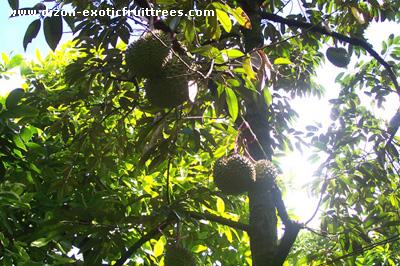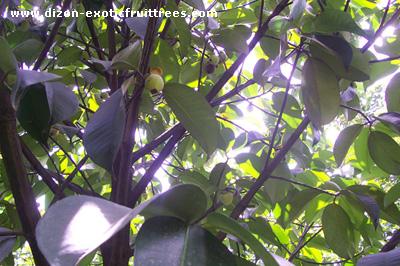|
Varietal Selections |
|
|
 |
 |
|
| The Philippine
Star, Agriculture/Environment, Sunday, October 3, 2004
|
|
Growing
exotic fruit tree in Luzon
|
|
by Roman F.
Floresca |
| |
 |
Contrary to a long held belief, Davao and other
exotic fruit trees can be grown in Luzon and very
profitably at that. The keys is technology of
cloning and multiple rootstocking.
Past planting of the exotic fruit trees has been
disappointing. Durian,
mangosteen,
pummelo,
lanzones
and rambutan from Davao and other imported fruit
trees were either stunted in growth and did not bear
fruits or died for lack of the right technology.
|
|
| Due
to differences in soil and climate conditions, technology
from Davao and other countries should be modified to suit
local conditions in Luzon. |
|
Bernie Dizon, noted pomologist in Luzon, says
culture and technology in Davao and other countries
cannot be copied one hundred percent; they have to
be modified. Dizon manages a 4,000-square meter
orchard at the Ninoy Aquino Parks and Wildlife along
North Ave. in Quezon City under a 20-year contract
with the Department of Environment and Natural
Resources (DENR). There he gives free lectures to
interested farmers and hobbyists |
 |
|
| every Saturday and Sunday on
the latest technologies. Established in 1992 in a
waterlogged area (2,000 square meters) with no forest trees
because of adobe soil and thin top soil, Dizon's modified
technology (cloning and multiple rootstocking) converted the
poor marginal land into a paradise of local and imported
exotic varieties of fruit trees. |
 |
Because of the project's success then Environment
and Natural Resources Secretary Victor O. Ramos
expanded Dizon's area by another 2,000 square
meters. He also commended Dizon for his excellent
work in showcasing the agro-forestry program of the
government.
Dizon advises orchard growers and hobbyists to study
first the cultural requirements of each variety
before deciding which cultivar to plant. A lot could
be learned from the free seminars which Dizon
conducts every weekend. |
|
| |
|
|

